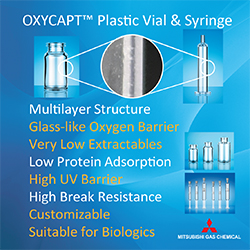Vaxxinity Completes Enrollment in Part B of UB-312 Phase 1 Clinical Trial for Parkinson’s Disease
Vaxxinity, Inc. recently announced it has completed patient enrollment for Part B of its ongoing Phase 1 clinical trial of UB-312 in Parkinson’s disease (PD). Vaxxinity’s investigational UB-312 vaccine candidate targets pathological forms of alpha-synuclein (aSyn) to treat PD and other conditions such as dementia with Lewy bodies (DLB) and multiple system atrophy (MSA).
“With enrollment now complete in the second part of this two-part study, we are thrilled to take another step forward in our efforts to develop a first-of-its-kind treatment for PD and other synucleinopathies,” said Mei Mei Hu, Chief Executive Officer of Vaxxinity. “We are grateful to the Michael J. Fox Foundation for its support of this ongoing study, and look forward to the end-of-treatment analysis in the second half of this year.”
Vaxxinity also announced that results from Part A of the Phase 1 trial evaluating UB-312 in healthy volunteers were published in Movement Disorders. The article, A Randomized First-in-Human Study With UB-312, a UBITh α-Synuclein Peptide Vaccine, outlines preliminary evidence suggesting UB-312 is well tolerated and induces dose-dependent antibody production, with high titer levels detectable in cerebrospinal fluid (CSF), a key characteristic for tackling diseases of the brain.
The Phase 1 clinical trial is a first-in-human, randomized, double-blinded, placebo-controlled study evaluating the potential of UB-312 in PD. The study has completed enrollment of 50 healthy volunteers in Part A, and 20 PD patients in Part B with Hoehn and Yahr stage ≤ III. The primary objectives are to determine safety, tolerability, and immunogenicity of UB-312. The study will also assess exploratory biomarker endpoints for target engagement using protein misfolding cyclic amplification. The clinical trial is being conducted at the Centre for Human Drug Research (CHDR) in the Netherlands, funded through a grant from The Michael J. Fox Foundation and in collaboration with the Mayo Clinic and the University of Texas. An end-of-treatment analysis is expected in the second half of 2022, with full analyses at end of study in 2023.
Parkinson’s disease currently affects approximately one million people in the United States and more than 10 million people worldwide. PD is a chronic and progressive neurodegenerative disorder that affects predominately dopamine-producing (“dopaminergic”) neurons in the substantia nigra area of the brain. While today’s approved products are aimed at providing symptomatic relief, they often produce significant side effects and lose their beneficial effects over time. There are no currently approved disease-modifying therapeutics for PD. Alpha-synuclein is a protein highly expressed in neurons, mostly at presynaptic terminals, suggesting a role in synaptic vesicle trafficking, synaptic functions and in regulation of neurotransmitter release at the synapse. Mutations in the gene encoding aSyn are known to cause or increase the risk of developing PD or DLB and have been shown to alter the secondary structure of aSyn, resulting in misfolded and aggregated forms of the protein (ie, pathological forms). While mutations in the aSyn gene are rare, aggregates of aSyn in the form of Lewy bodies (LB) and Lewy neurites are common neuropathological hallmarks of both familial and sporadic PD, suggesting a key role of aSyn in PD neuropathogenesis. Immunotherapy approaches targeting aSyn have been shown to ameliorate aSyn pathology as well as functional deficits in mouse models of PD and are now being investigated in the clinic.
UB-312 is a vaccine candidate targeting pathological forms of aSyn for the disease-modifying treatment of PD and other synucleinopathies. Preclinical data indicated that UB-312 elicits antibodies that preferentially recognize pathological forms of aSyn, and improve motor performance in mouse models of synucleinopathies. Clinical data from Part A of the Phase 1 trial indicate that UB-312 elicits antibody levels sufficient to cross the BBB (ie, detectable in CSF). The European Medical Agency (EMA) has granted UB-312 orphan designation for MSA.
Vaxxinity, Inc. is a purpose-driven biotechnology company committed to democratizing healthcare across the globe. The company is pioneering a new class of synthetic, peptide-based immunotherapeutic vaccines aimed at disrupting the existing treatment paradigm for chronic disease, increasingly dominated by monoclonal antibodies, which suffer from prohibitive costs and cumbersome administration. The company’s proprietary technology platform has enabled the innovation of novel pipeline candidates designed to bring the efficiency of vaccines to the treatment of chronic diseases, including Alzheimer’s, Parkinson’s, migraine, and hypercholesterolemia. The technology is also implemented as part of a COVID-19 vaccine program. Vaxxinity has optimized its pipeline to achieve a potentially historic, global impact on human health. For more information, visit www.vaxxinity.com.
Total Page Views: 617













